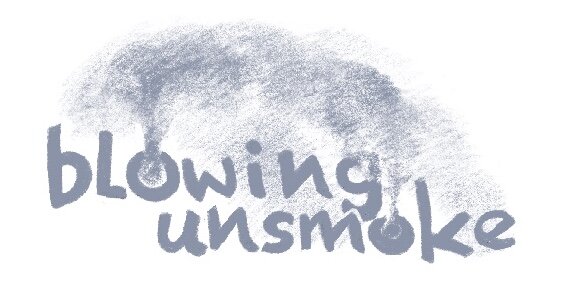
Editor’s Note: This investigation by the Kyiv Post is a part of Blowing Unsmoke, a transnational investigation produced by Organized Crime and Corruption Project (OCCRP) and 10 media partners worldwide. Read the full version by the link.
This story is available in Ukrainian here.
Valik Popsoviy, a 19-year-old singer and Instagram influencer from Kyiv, shares a video of Heets — the tobacco sticks he has just received — with his 15,200 followers. The sticks came from IQOS, a brand of tobacco-heating device produced by Philip Morris International, or PMI.
“IQOS delivery in new packaging,” Popsoviy says, while twisting a black pack in his hand. “Cool. Thank you, IQOS.”
The tobacco was delivered for free — a quarantine treat from PMI — and came with IQOS-branded souvenirs.
Dozens of such videos – including the one by Popsoviy – were published on the official Instagram account of IQOS in Ukraine, iqos_ua, in early April, nearly a month after the start of the nationwide lockdown the government introduced to curb the spread of COVID-19.
After quarantine started, PMI urged IQOS smokers to stay at home and made its deliveries free and ultra-fast.
Like many companies during the pandemic, PMI has been trying to emphasize that it is a health-conscious and responsible business. To this end, it has donated Hr 10 million ($370,370) to fight COVID-19 in Ukraine.
However, as it was making this generous gesture, PMI intensified its marketing efforts. It cut prices for IQOS, launched free bonuses for its clients, and teamed up with the popular Glovo delivery service.
PMI has kept encouraging people to buy its tobacco products during the pandemic, choosing not to alert their customers to the potential risks that COVID-19 – the most common complication of which is pneumonia – can have on the lungs of a smoker.
Ukraine is among 62 markets where PMI says it has donated a total of $30 million to fight COVID-19, which has killed 346,868 people as of May 25 since its outbreak in December.
Smoking kills 8 million people annually worldwide and also “worsens outcomes for COVID-19 patients,” according to recent research the World Health Organization cites in a statement. The WHO accused the tobacco industry of “taking advantage of the vulnerable situation” many countries found themselves in while fighting coronavirus.
“The tobacco industry (is) offering its ‘philanthropic help’ through donations of money, personal protective equipment, ventilators and other resources, in an effort to make the industry look good and enhance its reputation,” said Dr. Adriana Blanco Marquizo, head of the WHO Framework Convention on Tobacco Control (FCTC) Secretariat, in a statement.
Ukraine’s authorities signed and ratified the FCTC international treaty in 2006, obliging them to protect “public health from the vested interests of the tobacco industry and of those who work to further those interests.”
But Ukraine’s officials cannot claim success in this effort, and their failures benefit Big Tobacco.
Hr 10 million donation v. Hr 500 million in underpaid taxes
Anti-tobacco activists say that what PMI spent on its donation to fight COVID-19 was small compared to what it would have paid in taxes if stronger laws were in place.
In Ukraine, unlike in many countries, heated tobacco products are taxed three times less than traditional cigarettes, even though the price of Heets is comparable to PMI’s popular Marlboro cigarettes. This brings extra profits to Big Tobacco, including PMI, which sells IQOS, and British American Tobacco, which sells a device known as Glo.
“This illegal donation from tobacco corporation Philip Morris Ukraine, in our opinion, looks like a mockery of the public interest, considering that (tobacco) corporations will obtain additional profits of over Hr 500 million in 2020 due to ineffective government decisions,” Life, an anti-tobacco public organization, wrote in a statement.
Under these favorable tax conditions, PMI’s revenues are going up, PMI reported to its investors.
In the first quarter of 2020, net revenues of PMI in Eastern Europe increased by 35% compared to the beginning of 2019. That is “predominantly driven by higher heated tobacco unit volume in Russia and Ukraine,” the report says, alongside low tax rates for Heets.
In 2019, net revenues increased by 16% compared to the previous year for the same reasons: favorable pricing and increased sales of IQOS products. In 2018, net revenues rose by 12.1% due to “favorable pricing variance” in Ukraine and Russia.
Meanwhile, Ukraine’s budget is losing roughly half a billion hryvnias — $18.7 million — a year because heated tobacco products aren’t taxed the same as cigarettes, which are already undertaxed in Ukraine by Western public health standards.
Since 2018, the tobacco industry has lobbied for heated tobacco products to maintain their low tax rate. On May 21, despite fierce criticism from tobacco companies including PMI, President Volodymyr Zelensky signed into law a bill that applies regular tobacco tax rates to tobacco sticks for heating devices.
However, it won’t come into force until 2021 – tobacco lobbyists in parliament managed to introduce amendments delaying its enactment.
Yet Heets, the sticks used for IQOS, are subject to a gradual increase of excise taxes for tobacco products. This was Ukraine’s obligation before the European Union to raise prices on tobacco so that they match the minimum EU price by 2025. The prices for cigarettes and heated products in Ukraine are among the lowest in Europe.
PMI called excise tax increases across the world one of its main “business risks” during its annual meeting of shareholders on May 6, 2020. Even during the pandemic, PMI’s main concern appears to be keeping Heets cheap, so that people buy more of them.
PMI donates to a former high-level official’s organization
On April 2, the American Chamber of Commerce in Ukraine reported that PMI had donated Hr 10 million to fight COVID-19 in Ukraine. The tobacco giant made the donation to a non-profit called Health For All.
Legally, such a donation falls into a gray zone.
Two Ukrainian laws — on advertisement and on tobacco control — forbid tobacco companies and related organizations from supporting, financially or otherwise, virtually anyone and anything if there is even a slight chance it will lead to tobacco sales or stimulate use.
However, in practice it doesn’t do much.
“The legislation is there, but it is just ineffective,” said Hlib Kolesov, a lawyer at the Center for Democracy and Rule of Law. “There is a written algorithm on the amounts of fines for such sponsorship. I cannot find an explanation of why it is not working though.”
Additionally, PMI has a loophole: It donates through an intermediary charity organization that distributes the money.
PMI says the donation was legal because it had nothing to do with smoking.
“The purchase of protective equipment for the struggling hospitals or other organizations you list is not aimed at and does not result in promotion of a tobacco product or tobacco consumption and is, thus, not prohibited under the law,” Oleksii Kalynichenko, PMI’s head of communications for Eastern Europe, told the Kyiv Post in a statement.
The anti-tobacco activists disagree and insist that such a public donation is a promotion of tobacco and the brand.
Health For All, the charity that PMI donated to, is led by Serhiy Shevchuk, a doctor and a former healthcare official.
During over a decade in power, Shevchuk tried on a number of roles. He was a state secretary of the Ministry of Health in 2001-2002, worked as the minister of health in the opposition government Yulia Tymoshenko created in 2010 in response to her dismissal as prime minister, and ended his political career in 2012 as member of the parliamentary committee on health.
Shevchuk also chaired a subcommittee on adapting Ukraine’s legislation to the EU one. In 2009, for instance, he made some key amendments to one of the major anti-tobacco laws and managed to soften it.
PMI and Health For All have worked closely since Shevchuk, then a member of parliament, founded the organization in 2000.
One of the first projects that Shevchuk’s charity launched in 2001 was a series of posters about the dangers of smoking for pregnant women. PMI sponsored it, and 70,000 copies with a line reading “issued with the support of Philip Morris Ukraine” were distributed around “every school in Ukraine,” according to the charity’s website.
Only in 2011 would parliament ban the tobacco industry and related organizations from sponsoring anti-tobacco campaigns like this. The following year, Shevchuk ended his career as a lawmaker, but continued taking money from PMI.
For two decades, Shevchuk’s charity has been routinely accepting donations from PMI and spending them on projects like buying energy-saving equipment for hospitals, despite the law forbidding this kind of sponsorship.
“I am often asked, ‘How do you, the charity Health For All, doctors, collaborate with a tobacco company?’ My answer is simple: Any company that promotes its goods always finds a way to influence officials who make decisions. You know what I mean,” Shevchuk told the Kyiv Post. “It is better when they represent themselves with charitable projects.”
In 2014, Health For All openly appeared in PMI’s charitable contributions filings for the first time. Since then, PMI has donated almost $1 million to the charity.
However, the total sum the charity has received since its creation in the 2000s is unknown, as Ukraine’s laws do not oblige charitable organizations to disclose their finances.
But the PMI’s most recent donation, Hr 10 million for fighting COVID-19, proved to be difficult for Shevchuk to spend.
Struggle to park the PMI’s money
Shevchuk started his journey dedicated to finding those who would accept PMI’s donation at the Ministry of Health and the President’s Office.
Health for All was in touch with both offices “to allocate the money as effectively as possible,” Shevchuk said in a statement shared on his charity’s website.
It didn’t go anywhere.
The President’s Office started the Fund for Eliminating the Consequences of COVID-19 and raised almost Hr 375 million, but none of it from PMI. The President’s Office said it has not taken any money or having any official communication with PMI or Health For All. The Ministry of Health didn’t take it either.
Andriy Skipalsky, the director of the Directorate for Public Health known for his opposition to the tobacco industry, was surprised to learn from the news in March that Shevchuk claimed he was in discussions with the health ministry on how PMI’s donation would be spent. Skipalsky tried to figure out whether this was true and found no evidence of any official communication.
“It was a PR move and that was it. They chose the ministry as the means,” he told the Kyiv Post. “This is a very widespread problem in countries with weak political systems, constant changes of governments and officials, that are permanently shaken. And some want to take advantage of it,”
Skipalsky left the ministry in early May due to a disagreement with the ministry’s leadership, he said.
In fact, Shevchuk said his entire communication with the ministry was a private conversation with an affiliated doctor, Olga Golubovskaya. Golubovskaya, an infection specialist, used to be an advisor to ex-Health Minister Zoryana Skaletska. After Skaletska was fired in early March, Golubovskaya remained a member of the ministry’s council for preventing COVID-19.
Shevchuk said that Golubovskaya gave him “very useful advice” on spending the PMI donation. She allegedly suggested that the money be spent on a mobile hospital for COVID-19.
The Kyiv Post called Golubovskaya to ask her whether she advised a tobacco-related charity while working for the Health Ministry.
“I do not give comments over the phone,” she said and hung up.
With this idea, Shevchuk went to the Kyiv City Council. But this plan also wasn’t destined to succeed.
PMI’s mobile hospital
On April 9, The Confederation of Builders of Ukraine, Ukrainian Steel Construction Center and Rauta, a construction company, announced that they had teamed to design a mobile hospital for COVID-19 patients. They omitted the fact that a tobacco company was meant to pay for it.
Rauta has done work for PMI in the past: It engineered enclosing designs for PMI’s tobacco factory in 2017. The factory was built in Kharkiv Oblast and has been operational since 2006.
Lev Partskhaladze, the president of the Confederation of Builders of Ukraine, also helped a lot, according to Shevchuk. Partskhaladze drove him around Kyiv Oblast to find a perfect spot for the PMI’s hospital-to-be, he said. Partskhaladze did not respond to the Kyiv Post’s request for comment.
“He created a chat in messenger and called it ‘mobile hospital,’” Shevchuk said. “There was a very interesting communication among the engineers, builders and doctors.”
Shevchuk suggested that the Kyiv City Council let him deploy PMI’s hospital on the premises of an unfinished building in a suburb of Kyiv, according to documents published on the charity’s website. The administration rejected the proposal on April 14. They said the city had enough hospitals.
Spending it, finally
In mid-April, Health for All finally started spending PMI’s donation.
Ukraine’s State Border Guard Service was the first to receive part of it.
The Border Guard Service told the Kyiv Post that it approached PMI for help: Its employees lacked protective gear they needed while processing all the people returning to Ukraine on the cusp of the country closing its borders to prevent the spread of COVID-19.
On April 10, Health For All delivered boxes with gloves and medical masks, paid for by PMI, to the Kyiv headquarters of the Border Guard Service.
Lilia Olefir, executive director at the Life nonprofit, says actions like this place the state in a difficult position: It should reject this aid, but the tobacco company knows Ukraine is now in dire straits.
PMI “abuses this situation,” she said. “That is bribery and an attempt to form loyalty to a tobacco corporation.”
In accepting the aid, the state violated the FCTC treaty, Olefir added. Ratifying FCTC, Ukraine was recommended to impose a complete ban on all so-called “socially responsible” contributions from the tobacco industry as this is sponsorship. However, Ukraine decided to use a softer definition of sponsorship in its national legislation: It only bans sponsorships by tobacco companies that can lead to stimulation of smoking and increase sales of tobacco products.
The next donation went to Monastyryska, a small town in Ternopil Oblast, some 500 kilometers west of Kyiv, that had a serious COVID-19 outbreak among hospital staff in April. On April 17, PMI donated 500 protective costumes, 2,000 gloves, and 2,000 medical masks to the Monastyryska hospital.
That aid was brokered by top officials. Pavlo Dron, deputy head of the local administration, said that his acquaintances at the President’s Office and Foreign Ministry put him in touch with the Kyiv office of Philip Morris, where he asked for aid for the struggling hospital.
The Foreign Ministry neither confirmed nor denied its involvement in helping to allocate PMI’s aid.
“The ministry is being approached by the representatives of socially responsible businesses who offer their help or seek diplomatic support for their humanitarian supplies,” the Foreign Ministry told the Kyiv Post.
If the Foreign Ministry and the President’s Office indeed helped Monastyryska get aid from the PMI, this not only breaches the FCTC treaty but also creates room for conflicts of interests.
Both state bodies are responsible for ratifying another WHO treaty, The Protocol to Eliminate Illicit Trade in Tobacco Products, designed to combat the worldwide illegal tobacco trade, according to Olefir.
However, despite being one of the biggest illicit tobacco suppliers to the rest of Europe, Ukraine has stalled signing the treaty.
The rest of PMI’s COVID-19 donation went to Kharkiv Oblast, where PMI’s cigarette factory is based.
Historically, PMI has focused on donating money there — to schools or hospitals “near the PMI factory” or “in the vicinity of the PMI factory,” PMI’s annual reports say.
This time, it was the Kharkiv Oblast patrol police who received a donation from PMI. The police officers got medical masks, gloves, protective costumes and antiseptic, according to Health For All.
The chief of the local patrol police, Alyona Stryzhak, said that it was the police trade union that wrote a letter to PMI asking for help “at its own initiative.”
“The police accidentally learned about the trade union’s request to PMI for charitable aid because the tobacco company’s executant (Health For All) mistakenly sent an email about working on the request to the mailbox of the police,” Stryzhak told the Kyiv Post.
Maksym Lytvynenko, chairman of the Kharkiv District Council, happily built a PR campaign for himself around PMI’s donations.
In a number of publications on the council’s website, Lytvynenko is shown posing, with thumbs up, after taking part in the handover of PMI’s donation to the local police and five local hospitals.
In these articles, PMI is referred to as a friend who “did not stand on the sidelines.”
“Together with friends we will always win!” one of the publications says, referring to the tobacco company.
In a statement Lytvynenko sent to the Kyiv Post, he denied any wrongdoing. He said that his cooperation with PMI was “aimed at protecting the population and preventing the spread of the acute respiratory disease COVID-19 caused by the coronavirus SARS-CoV- 2 (and) is not intended to and does not encourage the sale of a tobacco product or the use of tobacco, directly or indirectly.”
Altogether, PMI has spent a little less than Hr 2 million of its Hr 10 million donation so far, according to Shevchuk. The rest of PMI’s money, he said, is about to go for scientific research into coronavirus mutations.
IQOS marketing: free delivery, free movies, free fridge magnet
While Shevchuk was busy trying to spend PMI’s COVID-19 donation, the tobacco company was putting efforts into marketing its primary product, IQOS.
First, PMI decided to lift the payment for IQOS deliveries. On March 18, a week after the quarantine was imposed in Ukraine, PMI announced that it was making its IQOS and Heets deliveries free so that smokers would “not have to leave the house once again and go to the shops.”
The next move was to cut prices on IQOS devices starting from March 23. Seeking to improve revenues, PMI launched discounts ranging from 15% to 25%, depending on the product.
Then it came up with quarantine-themed presents for IQOS customers. The company offered IQOS users a free week-long subscription for Megogo, a video streaming service.
“Our marketing activity remained the same during the COVID-19 epidemic. We didn’t add anything on top,” PMI told the Kyiv Post.
PMI has also sent presents to Instagram influencers like Lera Borodina, a popular blogger and founder of the Oh My Look dress rental company and G.Bar beauty salons.
On May 8, Borodina, who regularly receives presents from PMI, got a new one: the latest model of IQOS in a limited edition “aquamarine” color. She filmed it and shared the video with her 250,000 followers.
“Just look at this. This is the most beautiful color IQOS ever made,” Borodina said in the video.
Soon, the Cosmopolitan Ukraine website published an article that declared IQOS’s new limited edition color “trendy this season.” In Ukraine, PMI regularly sponsors articles in popular media outlets.
For customers less famous than Borodina, PMI offered a fridge magnet reading “IQOS-friendly.”
“You can be IQOS-friendly at home,” says a note that comes with the present.
This is a direct reference to “IQOS-friendly” signs in restaurants across Ukraine that allow customers to smoke IQOS, a regulation that skirts the edge of the indoor smoking ban the country imposed in 2012.
IQOS managed to bypass this ban by getting its Heets tobacco sticks certified as tobacco-containing products “not for smoking,” echoing PMI’s narrative that IQOS does not burn, but heats tobacco. This statement was disputed by researchers at the University of Bern in 2017.
PMI says that “IQOS does not negatively impact indoor-air quality” because it generates aerosol that “is much less toxic than cigarette smoke.” Hence, PMI says, it is healthier.
When PMI applied to the U.S. Food and Drug Administration to sell the IQOS in the United States as a “reduced-risk tobacco product,” the FDA rejected PMI’s claim that its heat-not-burn tobacco product cuts the risk of tobacco-related diseases. In 2019, the FDA permitted IQOS sales, but emphasized that this does not mean that IQOS is “safe or ‘FDA approved.’”
The other independent analysis was conducted by the Italian state Health Institute. It came to the same conclusion, but its report was never released. However, a copy of the research was obtained by OCCRP’s partner in Italy, Report, an investigative broadcast program. The institute’s conclusion was that the aerosols emitted by IQOS cannot be said to be safer than cigarette smoke.
In Ukraine, the Institute of Ecohygiene and Toxicology assessed Heets’ compliance with Ukrainian sanitary legislation. It concluded that IQOS “does not burn” and is “not for smoking.”
It is also the institute that Shevchuk said he “collaborates with” on spending PMI’s donation for fighting COVID-19.
The Institute’s press secretary confirmed that its director, Mykola Prodanchuk, personally knows Shevchuk. However, Prodanchuk denied any cooperation with him.
Targeting youth during quarantine
PMI actively encourages its customers to film whatever IQOS related product they have ordered and publish the video online during quarantine.
“It is allowed to film unpacking,” a line on IQOS’s new packaging says — a reference to their “Allowed” (“Mozhna” in Ukrainian) marketing campaign that started in February.
When Valik Popsoviy, a 19-year-old singer, received his Heets, he followed that suggestion. He filmed the pack with “IQOS-friendly” souvenirs inside and posted the video on his Instagram in early April.
“Don’t think that we expect to receive anything in return. But if you decide to publish something on social media,” IQOS suggests in a paper note that comes with the present, “make sure that your followers are grown-ups and remember that IQOS does not exclude all health risks.”
PMI’s internal standards require an influencer advertising its product to be over 25 years old. In reality, there are ways around that rule — such as reposting its customer’s post about the product for free.
When Popsoviy, 19, published his unpacking video, IQOS’ official Instagram account in Ukraine instantly reposted it for its 37,000 followers.
Popsoviy, who sings about love and girlfriends, has 15,200 followers on Instagram and 19,100 followers in Vkontakte, a Russian social media website. Many of his followers are roughly his age and younger.
On May 21, IQOS removed the video of Popsoviy from its Instagram account after the Kyiv Post asked PMI to explain why they used a video that breaches their own policy, featuring a person under 25 years old. The video returned a day later.
“We have not engaged with the individual you refer to in your email and have no affiliation to his social network accounts,” PMI told the Kyiv Post.
50 percent of teenage Ukrainians aged 13-15 have tried e-cigarettes. Almost 20 percent of teenagers smoke tobacco products regularly, according to the most recent research by the Global Youth Tobacco Survey.
Anti-tobacco activists say that the aggressive promotion of IQOS on social media, its sponsorships of food festivals and fashion events and the promotion of “IQOS-friendly” restaurants have made e-smoking so widespread.
Back in May 2019, PMI was forced to suspend its entire international social media influencer campaign when a Reuters investigation revealed that the company had hired models who were under 25, violating its own internal guidelines.
“Our guidance called for influencers to be 25+ years of age. This was a clear breach of that guidance,” PMI commented on Reuters’ findings.
In an investigation published on Feb. 25, the Kyiv Post discovered that, despite promises to stop using young attractive influencers for IQOS commercials, PMI kept doing it in Ukraine. PMI denied any wrongdoing.
Glovo & IQOS: free delivery for everyone. Kids included
“Hello, my name is Sonya and I’m 16-years-old. I will now try to order Heets cigarettes through the Glovo delivery service,” says a young girl from Kyiv in a video published by Life, a Ukrainian anti-tobacco group. Glovo, an international company that delivers meals from restaurants, groceries or pharmaceuticals, teamed up with Philip Morris in April to start bringing IQOS and Heets to people’s homes.
In the video, the girl proceeds to order two packs of Heets, the tobacco sticks for IQOS, through the Glovo app and soon receives them. The app allowed her to skip the age check, and the courier didn’t ask to see her ID.
On May 13, anti-tobacco activists conducted a similar experiment in Lutsk, a city 400 kilometers west of Kyiv. A 15-year-old girl managed to order Heets directly from IQOS’s official website. She cheated on the form that asked her age and the courier did not check her documents.
“We use multiple age-verification methods to ensure minors do not have access to our products,” PMI said in a statement sent to the Kyiv Post. “We are disappointed that a person violated Glovo’s terms and conditions and bypassed self-age declaration to order heatsticks online. We are saddened that in this instance the delivery service did not follow the age verification instructions during the delivery.”
“It was a cynical marketing move” for PMI to collaborate with Glovo and to make its delivery free, said Oleg Slabospitsky, a coordinator of the nationwide campaign Youth Free From Smoking that conducted the experiment.
“The tobacco industry understands that there are not that many entertainment outlets left for kids. They take the bait of this marketing trick, they receive a notification on Viber (messenger) that there is something they have never tried before, so why not try now. And the delivery is also free,” Slabospitsky said.
In response, Glovo has since changed the layout of its app. Now the age check window does not close until it gets a response to the question of whether the customer is at least 18.
“It is senseless until the courier checks the documents,” Slabospitsky said. Glovo told the Kyiv Post it “had held an additional talk with its couriers about the mandatory document check.”
Glovo also said that their app is for grown-ups only. However, the requirement to be over 18 is only listed in “terms and conditions” and proved easy to omit.
But while both PMI and Glovo present this as an error, tobacco researchers have a different view. Anna Gilmore, a professor at the University of Bath who studies the tobacco industry, told the OCCRP that she sees it as part of a larger, cynical marketing strategy.
“They’ve transformed, or they want to transform, the tobacco market from one in which this is a really sordid product, to one where it is incredibly glamorous again,” she said. “And the idea of that is really going to reduce harm and is really just targeted as smokers I think is farcical.”
Editor’s Note (correction): Earlier version of this story mistakenly stated that the American Chamber of Commerce in Ukraine reported about PMI’s Hr 10 million donation on Feb. 4. However, the correct date of the publication was April 2. Philip Morris refused to say when exactly they made the donation.
What is IQOS?
IQOS is the flagship tobacco-heating device of Philip Morris International, one of the largest tobacco companies in the world. While traditional cigarettes burn at 800 degrees, IQOS heats tobacco up to 350 degrees until tendrils of aerosol are released.
IQOS sits in between traditional cigarettes and e-cigarettes or vape. It contains tobacco, while e-cigarettes only hold a nicotine solution. The tobacco sticks for IQOS, which are called Heets, are smaller than traditional cigarettes.
PMI claims that Heets contain much fewer carcinogens than traditional cigarettes, however, there is no evidence that smoking IQOS is any safer than smoking other tobacco products.
You can also highlight the text and press Ctrl + Enter


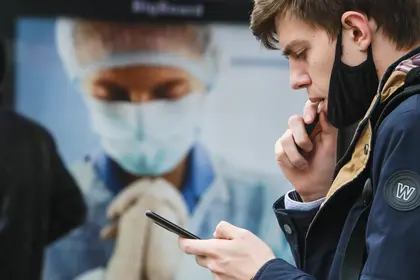
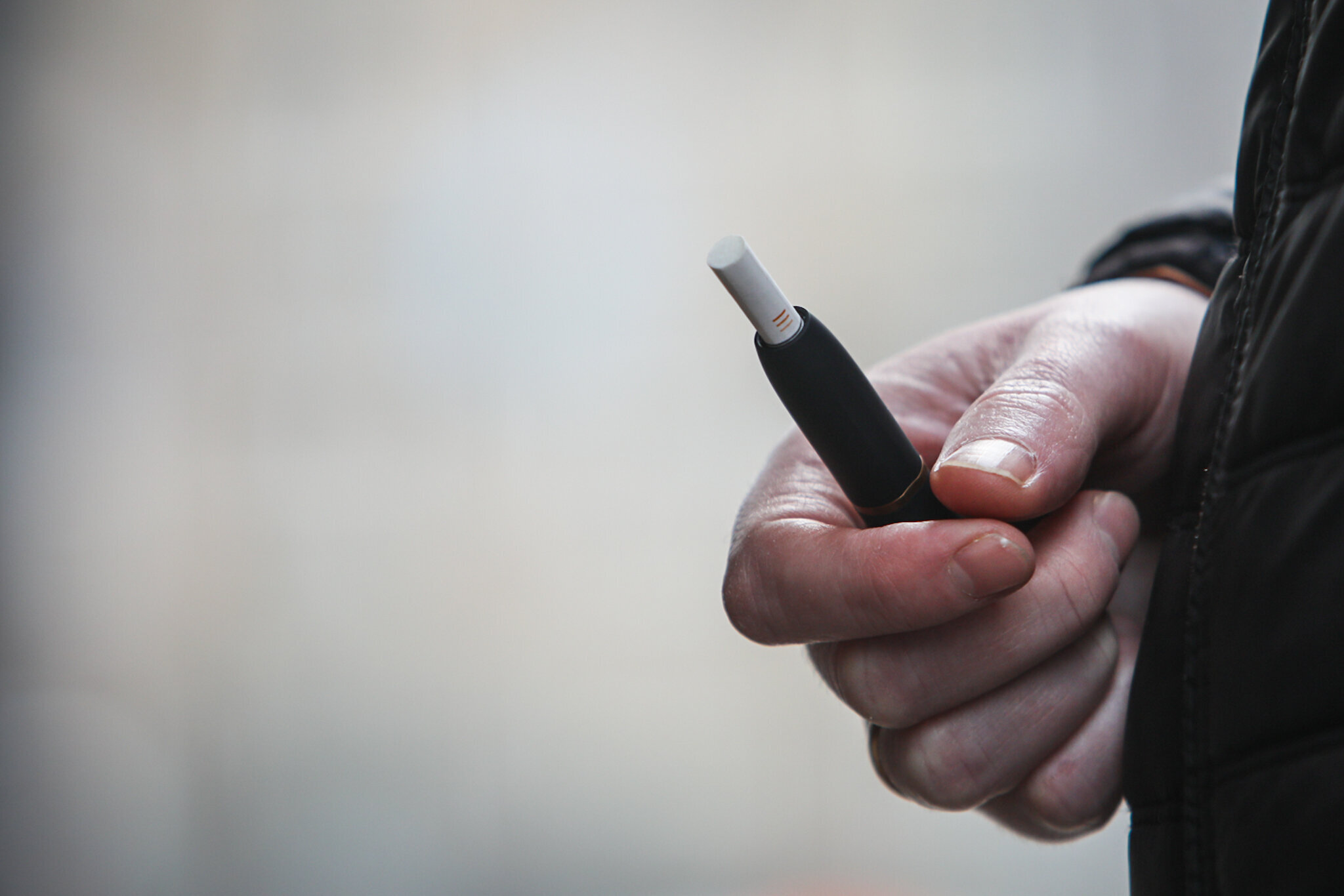
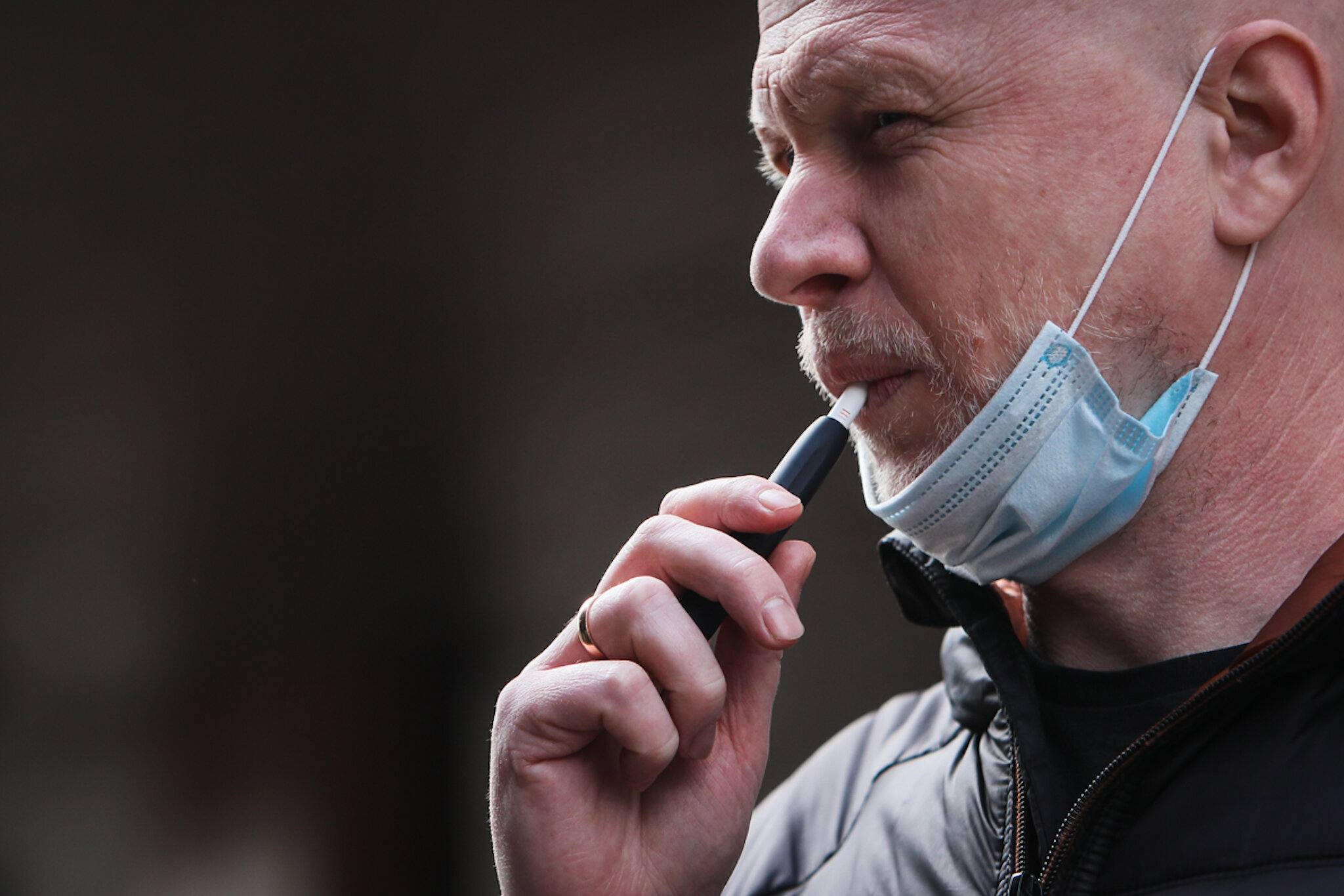



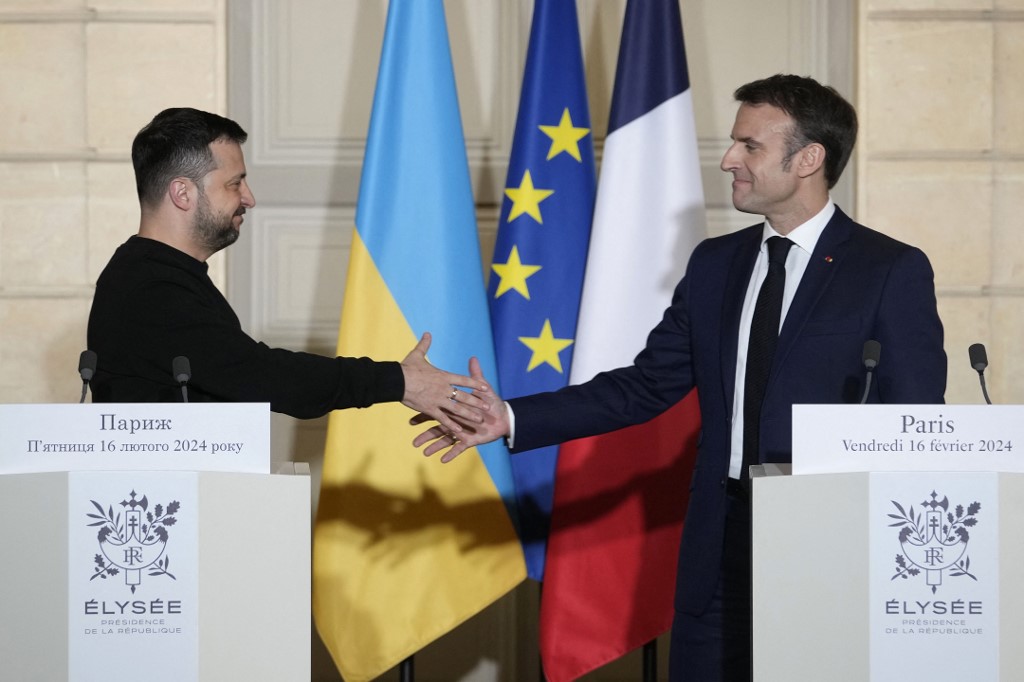
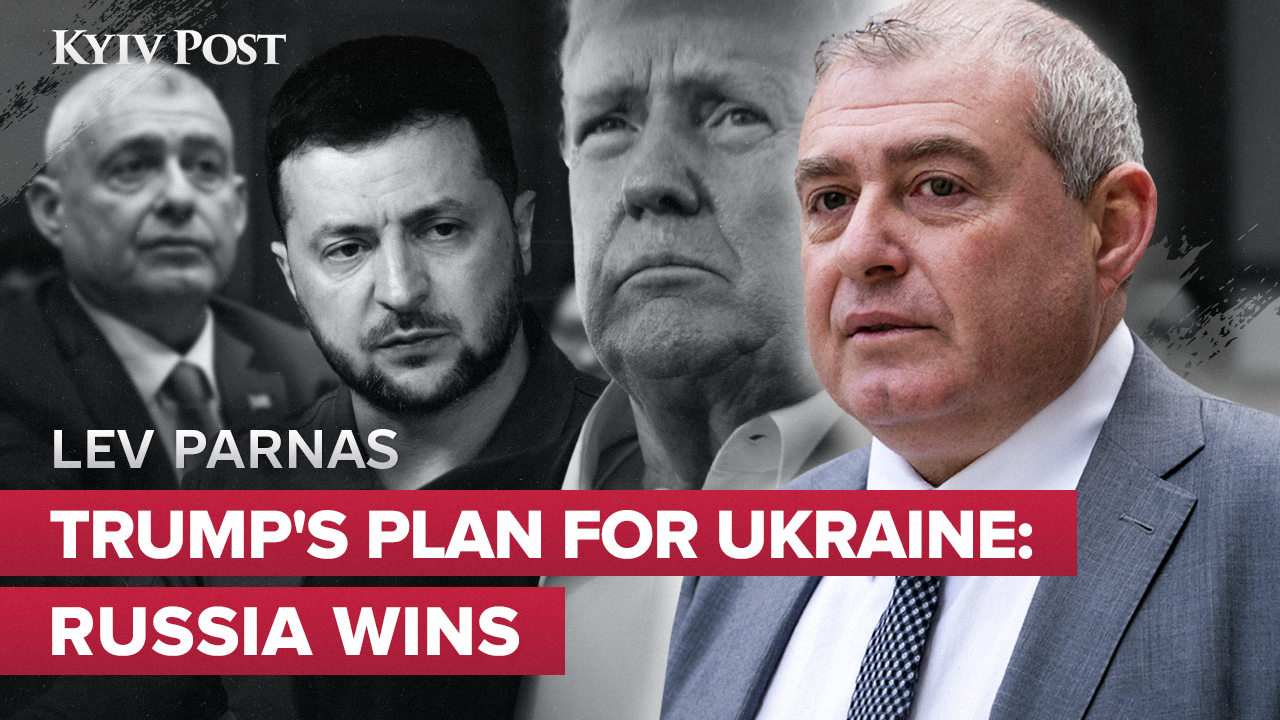
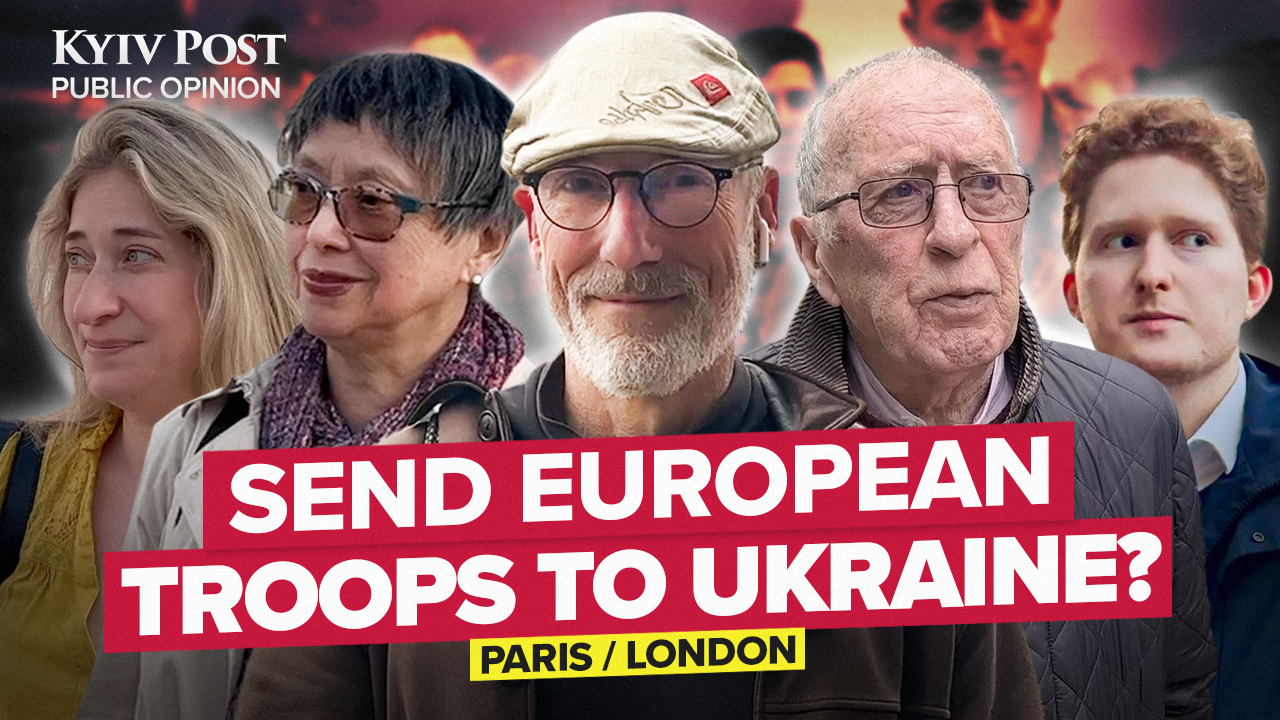
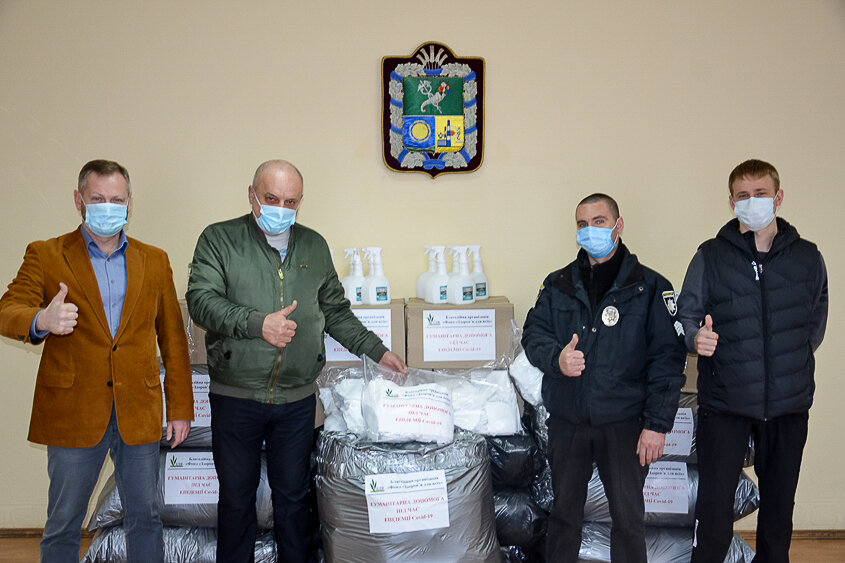
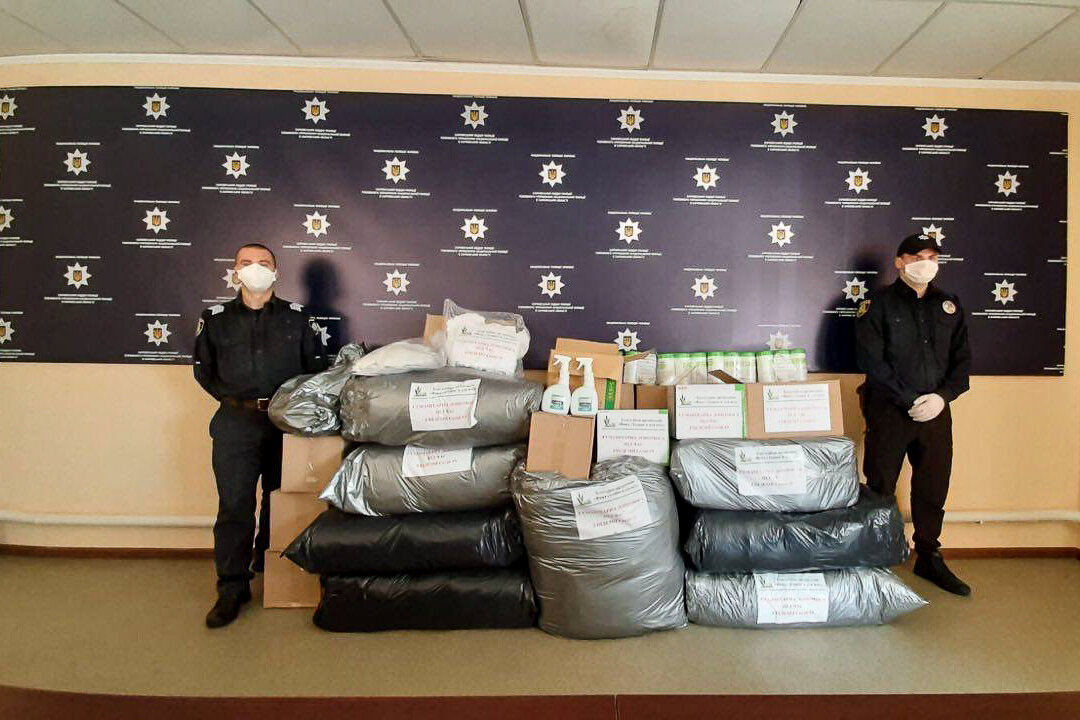
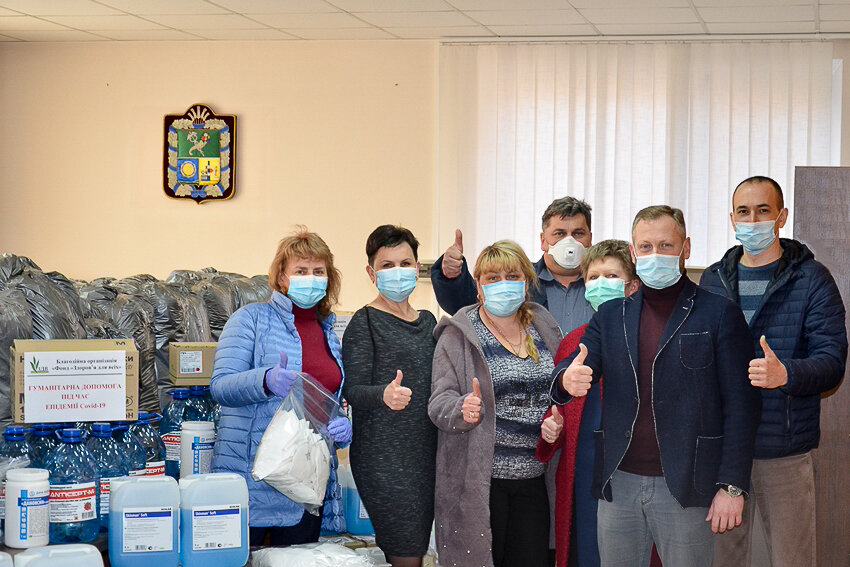
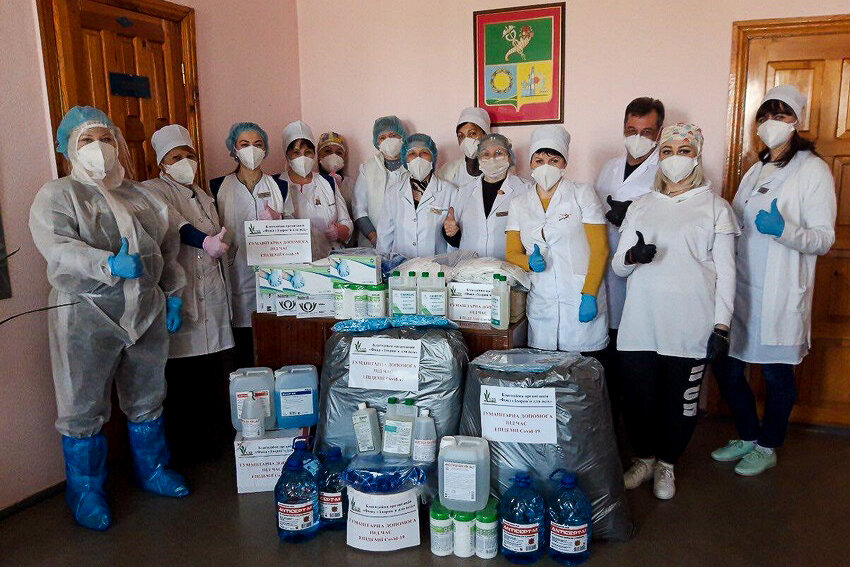
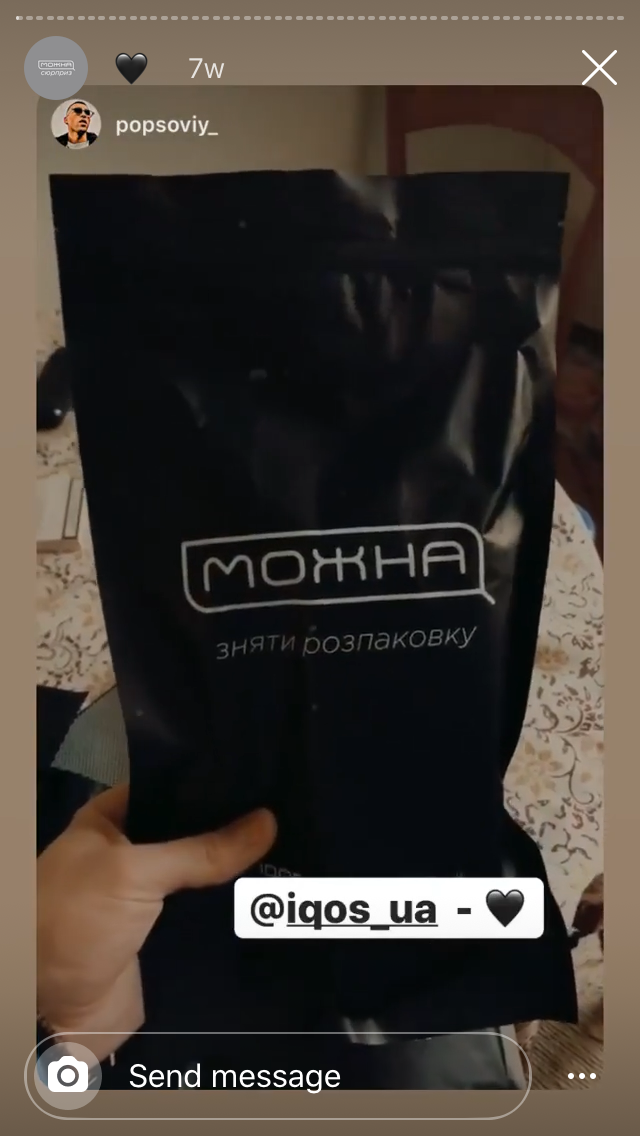
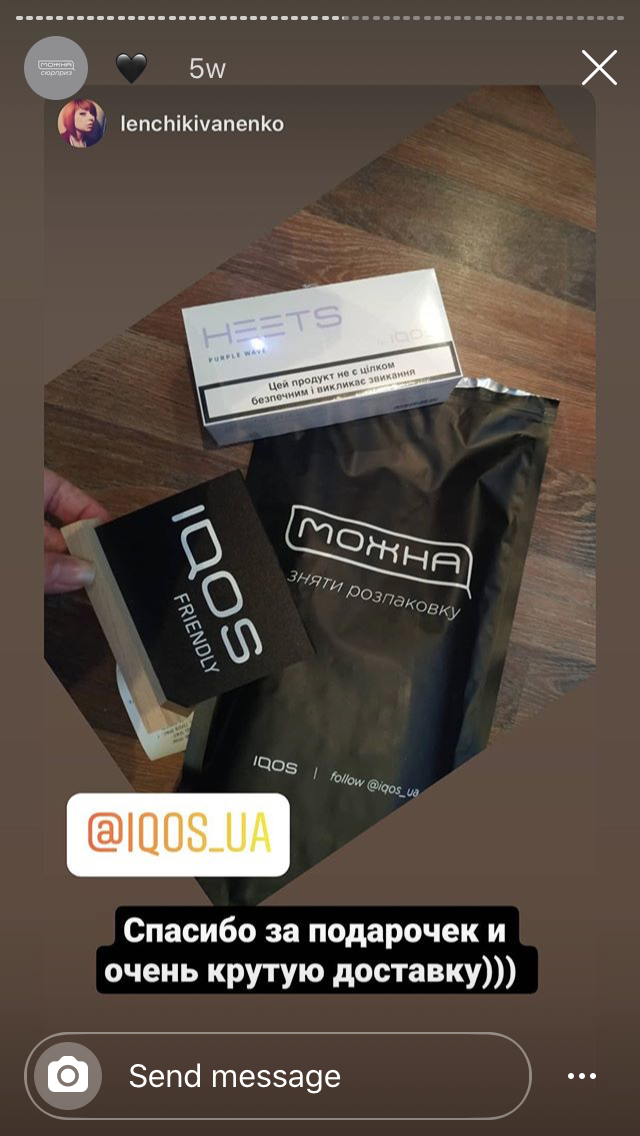
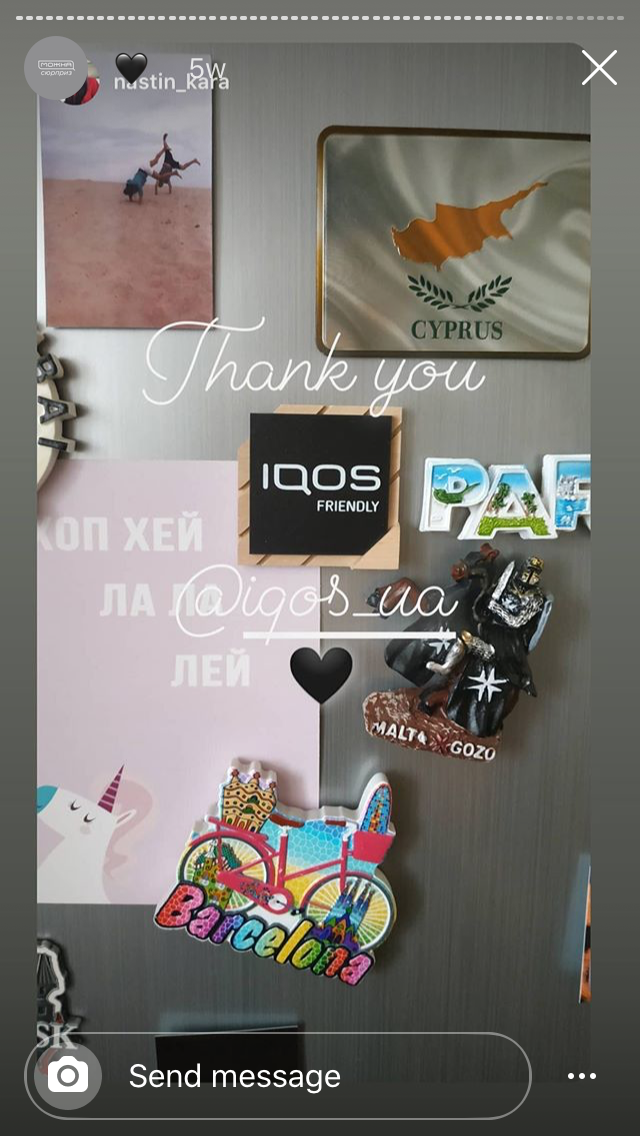
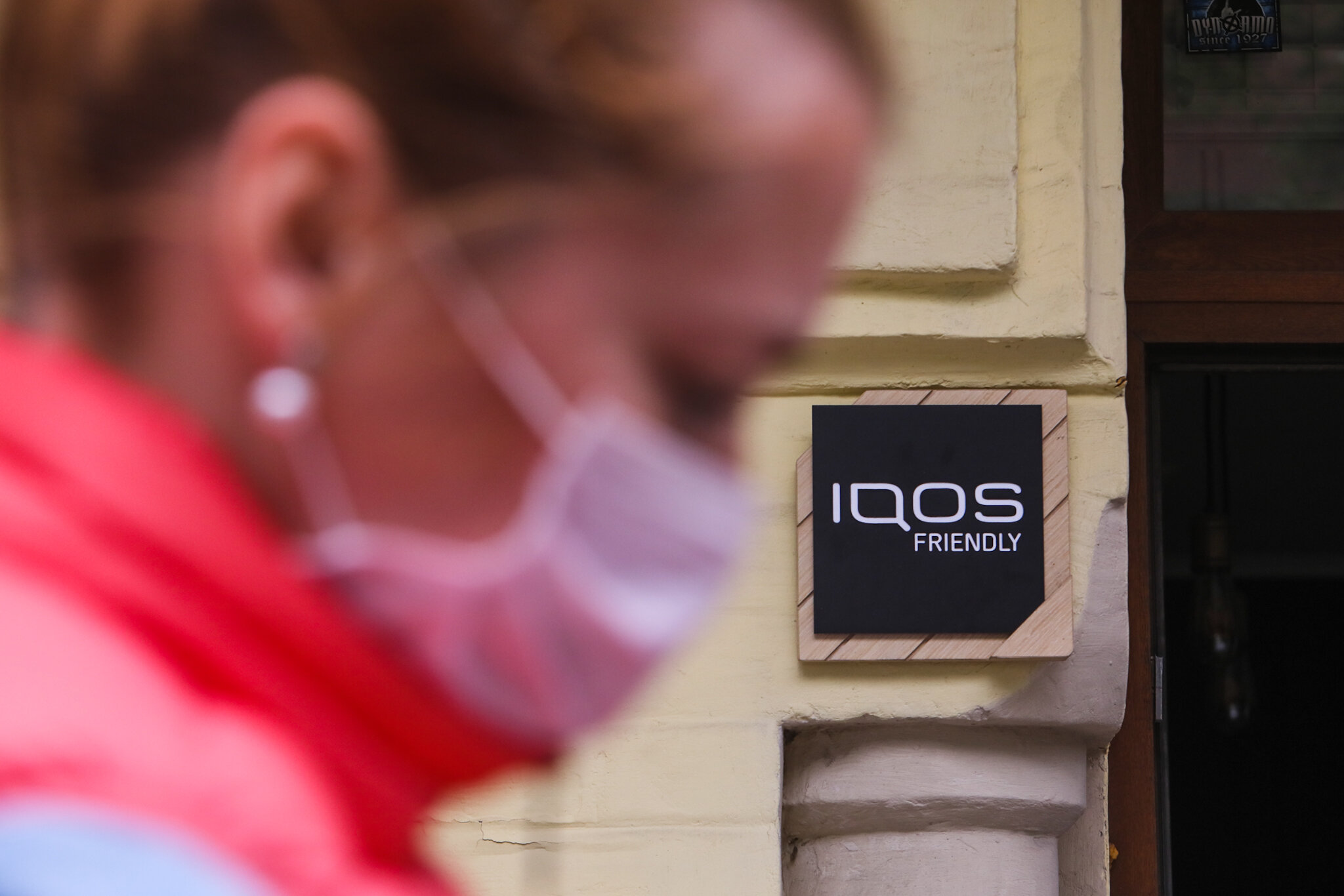
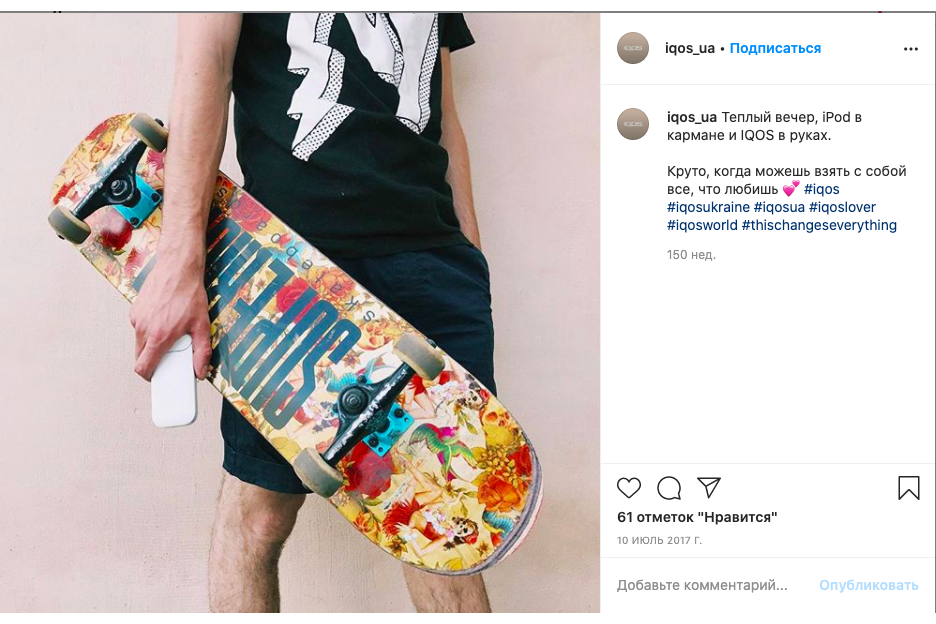
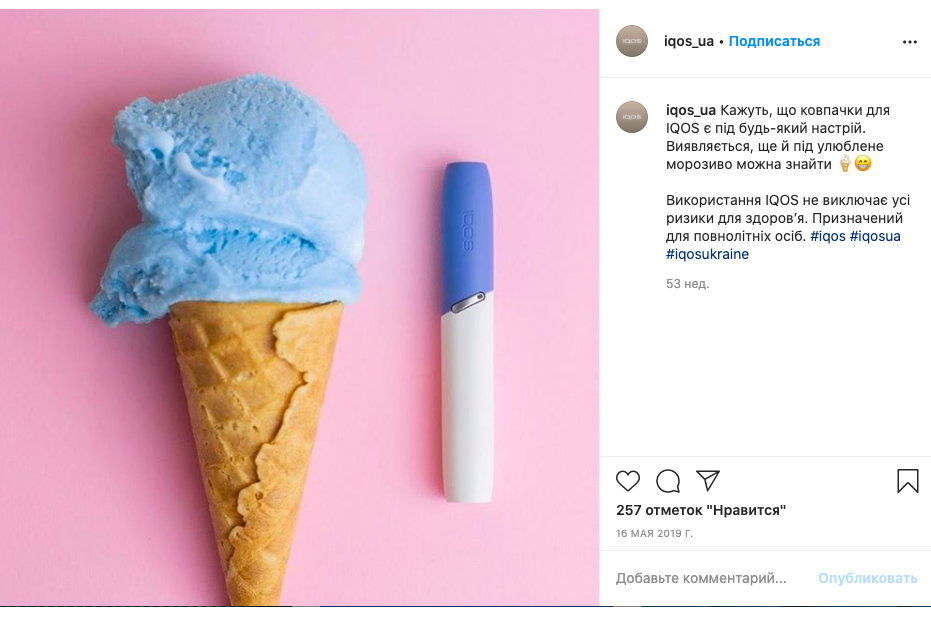
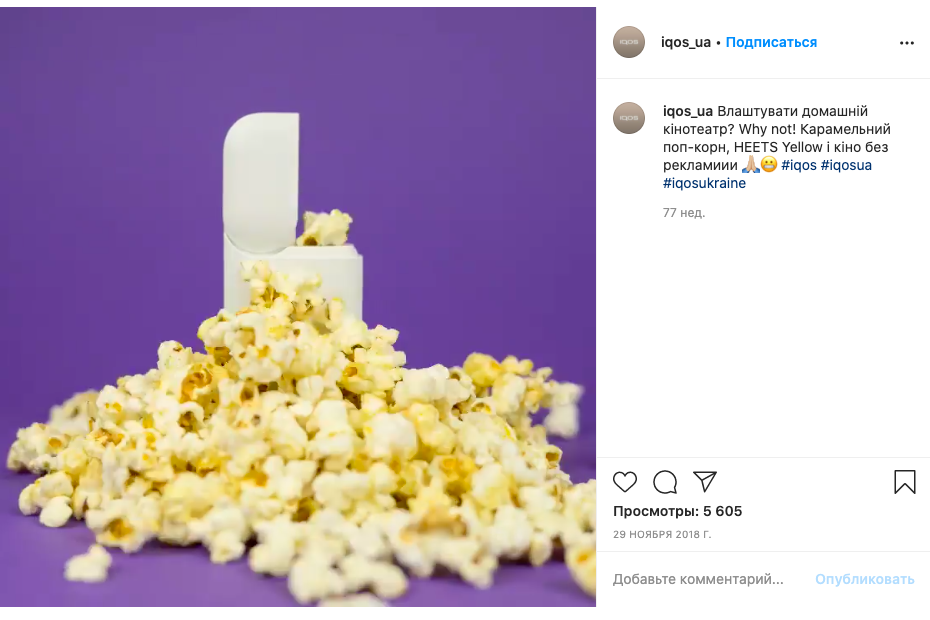
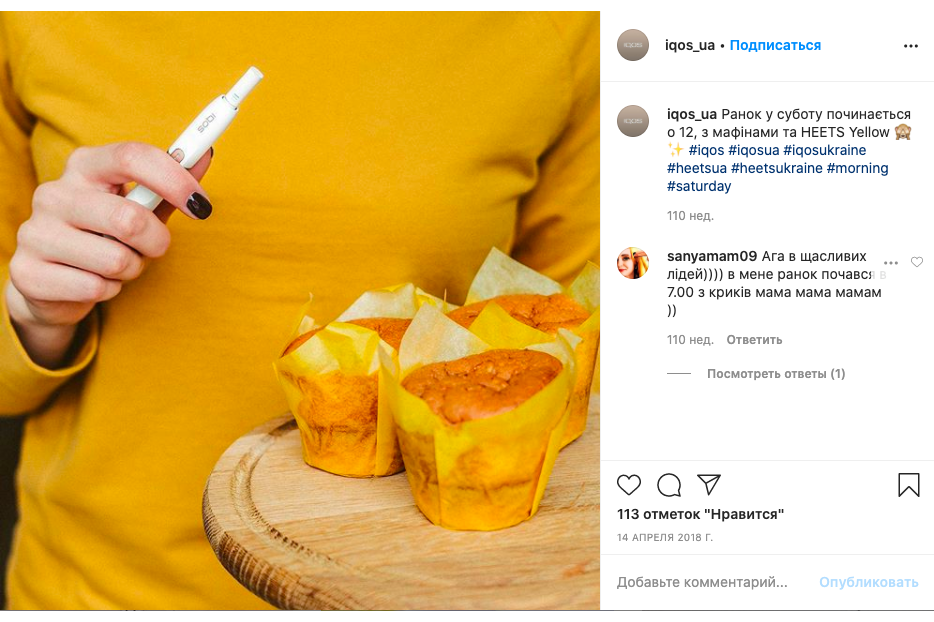

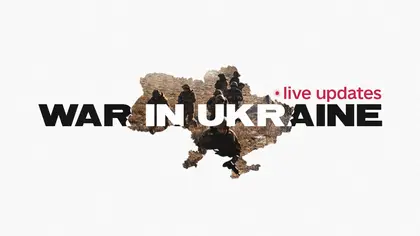
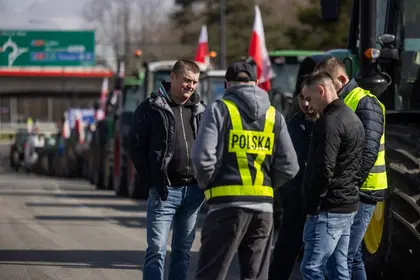
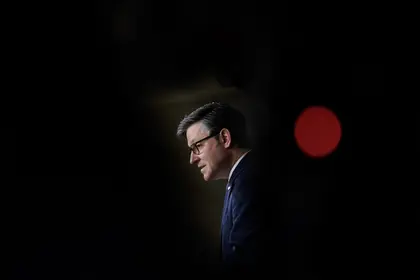
Comments (0)